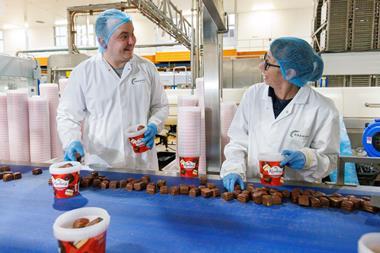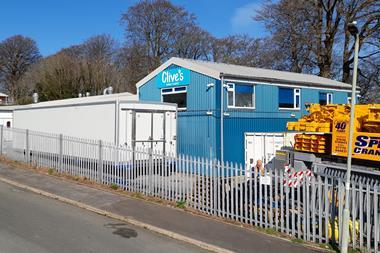The grocery sector reported a 0.5% rise in sales in the four weeks to 28 February, after months of little or no growth, according to Kantar Worldpanel.
Sainsbury’s was the only one of the ‘big four’ supermarkets to report a growth in sales. Its revenue was up 0.5%.
There was an improved performance from Tesco, which cut its sale decline from -1.6% in the last 12-week period to -0.8% this time.
Fraser McKevitt, head of retail and consumer insight at Kantar Worldpanel, said Tesco had benefited from turning its attention back to price promotions. He said: “This has helped stem the flow of shoppers leaving the retailer despite the closure of around 50 stores in the last year.”
Morrisons’ sales were down 3.2%, which is in part because it shut a number of loss-making supermarkets last year and offloaded 140 of its convenience stores.
McKevitt said: “Online, Morrisons’ sales are growing strongly, a trend set to continue in the coming months as the retailer converts more existing in-store shoppers to its e-commerce channel.”
He also suggested that the Bradford-based chain could also benefit from its recent supply deal with Amazon. Morrisons is due to report its full-year results on Thursday (10 March).
Asda drop in sales
Asda recorded a 4% drop in sales. Kantar suggested that this was because shoppers had turned away from larger stores, where Asda is dominant, to smaller convenience stores, where the Walmart-owned chain has a smaller presence. It said: “Sales in larger stores have fallen by 2% as consumers spend less per average trip in these shop formats.”
Asda announced last month that sales fell 5.8% during the three months that include Christmas, its biggest quarterly sales fall on record.
The discount sector continued to grow, with sales at Aldi and Lidl growing by 15.1% and 18.9% respectively in the 12-week period.
Ronny Gottschlich, managing director of Lidl UK, said it was “incredibly encouraging” that the discounter had retained its position as Britain’s fastest-growing supermarket for the sixth consecutive month. He said: “We’re seeing more and more customers turn to Lidl for their regular shop.”
Waitrose up
Waitrose’s sales edged up by 0.2%. The retailer has carved out a niche at the upper end of the grocery market, but has been struggling to sustain growth in recent months. In January it reported its worst Christmas performance since 2006.
The Co-operative’s sales climbed 1.9%, as the retailer benefited from having convenience stores in most postcodes.
Separate data from market data company Nielsen, also released today, put Sainsbury’s sales growth as flat for the same 12-week period, while Asda’s fall was even greater, at 5%. Tesco’s growth stood at -0.5%, according to Nielsen.
Back to basics
Mike Watkins, Nielsen’s UK head of retailer and business insight, suggested in the statement that Tesco was winning back customers by concentrating on “the basics”.
He said: “Supermarkets offering more locations, good private-label and a superior customer experience – not just lower prices – tend to be more successful, and these are some of the areas where Tesco is focusing.”
Meanwhile, figures from the British Retail Consortium showed UK like-for-like retail sales grew by just 0.1% in February, compared to the year before. Deflation in food prices pushed grocery sales down 1.1% in the period from December to February.
































No comments yet